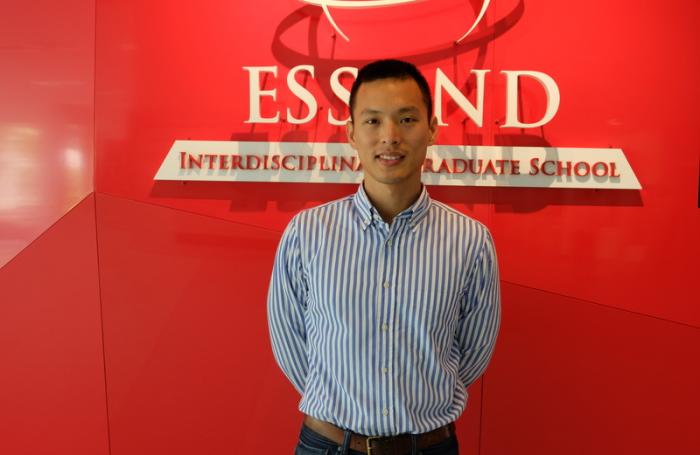Profile: Dr Tanwa Apornthip’s love of science and Phuket

PHUKET: Dr Tanwa Apornthip is currently a faculty member at Prince of Songkla University (PSU), Phuket campus. He recently obtained his PhD from the University of Virginia and joined the interdisciplinary graduate school of Earth System Science and Andaman Natural Disaster Management (ESSAND) at PSU.
Hailing from a scientific family, Dr Tanwa says he has always looked up to his dad, who pushed himself to study new skills, especially computer-related ones.
“Due to my tendency to disorganize my father’s books, I was forbidden to touch them. Nevertheless, I always managed to sneak in and read every single book. Eventually, my needs to learn outgrew my patience to wait for my parents to buy me new books. Bookstores were where I spent my middle-school weekends, reading all that I could,” says Dr Tanwa.
“Science was the subject I liked the most. The methodical work ethic of scientists and the logical justification of each scientific theory immediately struck me as one of the most beautiful concepts discovered by humankind.”
His love for science led him to become a scholar under the Development and Promotion of Science and Technology Talents Project (DPST) and the Junior Science Talent Project (JSTP) programs during his high school years, where he was constantly exposed to scientific methods and a coherent way of thinking. He then won another scholarship that supported him through his bachelors, masters and doctorate in the US.
“I want to use my knowledge for the betterment of Phuket and Thailand by combining analytical skills with social and environmental problems to create long-lasting and effective solutions. I look at Phuket and feel disappointed that an island with so much potential has achieved so little,” he says.
At ESSAND, Dr Tanwa aims to solve environmental and disaster-related problems, especially for the Andaman region.
“My colleagues and I are studying a myriad of topics, all of which are fascinating to me. Some of our projects include seawater intrusion in Phuket, greenhouse gas inventory in Phayao, and biodiversity of corals, planktons, and marine life in Phuket. Not only are we doing impactful research, we are also producing masters and PhD graduates who will be the basis for the next generation of scientists,” he says.
Dr Tanwa remembers his time in the US with fondness.
“The University of Virginia, just as most universities in the US, is full of opportunities. It allowed me to explore and discover who I am. The entire faculty of the Physics department, while highly supportive, set a high bar for all of us,” he says.
Having a background in both physics and finance, Dr Tanwa wants to convince business owners to start adopting solar energy en masse.
“My research associates and I are making a complete financial analysis of the return on investment and competitiveness of solar energy in Phuket. Increased use of solar energy will help ease Phuket’s looming energy crisis and also improve the bottom line of business owners. We are also trying to optimize tsunami evacuation routes, which will help reduce evacuation time and save more lives if disaster strikes,” he says.
Besides his research work and academic undertakings, Dr Tanwa is an avid musician. He studied jazz as an undergraduate and plays piano and guitar. “Late last year, I discovered the joy of playing the saxophone. Right now, I am trying to make sure my saxophone produces other sounds that don’t resemble whales’ mating calls,” he laughs.
His advice to his students, or anyone who wants to learn something, is simple. “There is no substitute for hard work and perseverance. All the information and knowledge is already out there; you just have to follow where you want to go,” he says.
— Sahar Aftab Paliwala
Latest Thailand News
Follow The Thaiger on Google News:


























